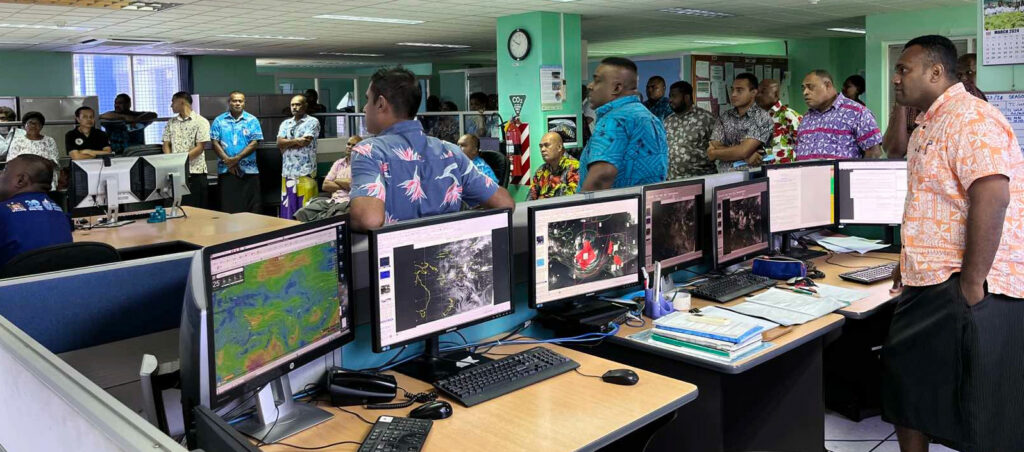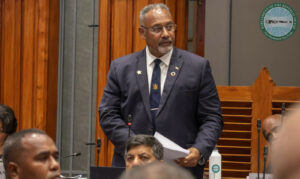
Caption: Staff members of the Ministry of Rural and Maritime Development and Disaster Management briefed by officials from the Fiji Meteorological Services (FMS) in Nadi.
The Fiji NDMO and the Ministry of Rural and Maritime Development and Disaster Management welcome the passing of the Meteorological and Hydrological Bill by Parliament this evening.
The Bill will improve our ability to predict and monitor natural hazards, thereby reducing the risk and impact of disasters such as floods, storms, and droughts.
Speaking in support of the Bill during its debate in Parliament, Minister for Rural and Maritime Development and Disaster Management Hon. Sakiasi R Ditoka said the passing of this Bill would complement the National Disaster Risk Management Bill which was also tabled in Parliament earlier today.
Hon. Ditoka highlighted that supporting the Meteorological and Hydrological Bill demonstrated our commitment to protecting communities and more importantly saving lives from weather-related disasters through improved forecasting and early warning systems.
“The Bill before us will enable the Meteorological Office to establish robust meteorological and hydrological systems to address these evolving weather conditions. It supports the development and implementation of strategies to mitigate the adverse effects of climate change by providing a legal framework to protect our communities,” Hon. Ditoka stated.
“One key area of collaboration with the Meteorological Office is
impact-based forecasting, where the Meteorological Office provides warnings alongside exposure information, and the NDMO analyzes risk impacts and vulnerabilities in affected areas. Mr. Speaker, Sir, this contributes to the broader Multi Hazard Early Warning System of Fiji which is being included in the revised DRM Bill which was tabled today. Formalising this ongoing work within a legal framework ensures accountability to both the government offices and the people of Fiji. It is our primary duty as members of this House to ensure the safety and welfare of all Fijians.”
The Bill, he said, promoted economic resilience and sustainability by enhancing meteorological and hydrological services, which would benefit various sectors such as agriculture, waterways, and infrastructure planning.
“The Bill also mandates the Fiji Meteorological Office as the sole provider of warnings for meteorological and hydrological hazards. During disasters, incorrect warnings can cause public panic. Providing this legal mandate will hold accountable any organisation other than the Fiji Meteorological Service that issues such warnings, thereby mitigating misinformation that can affect disaster response.”





